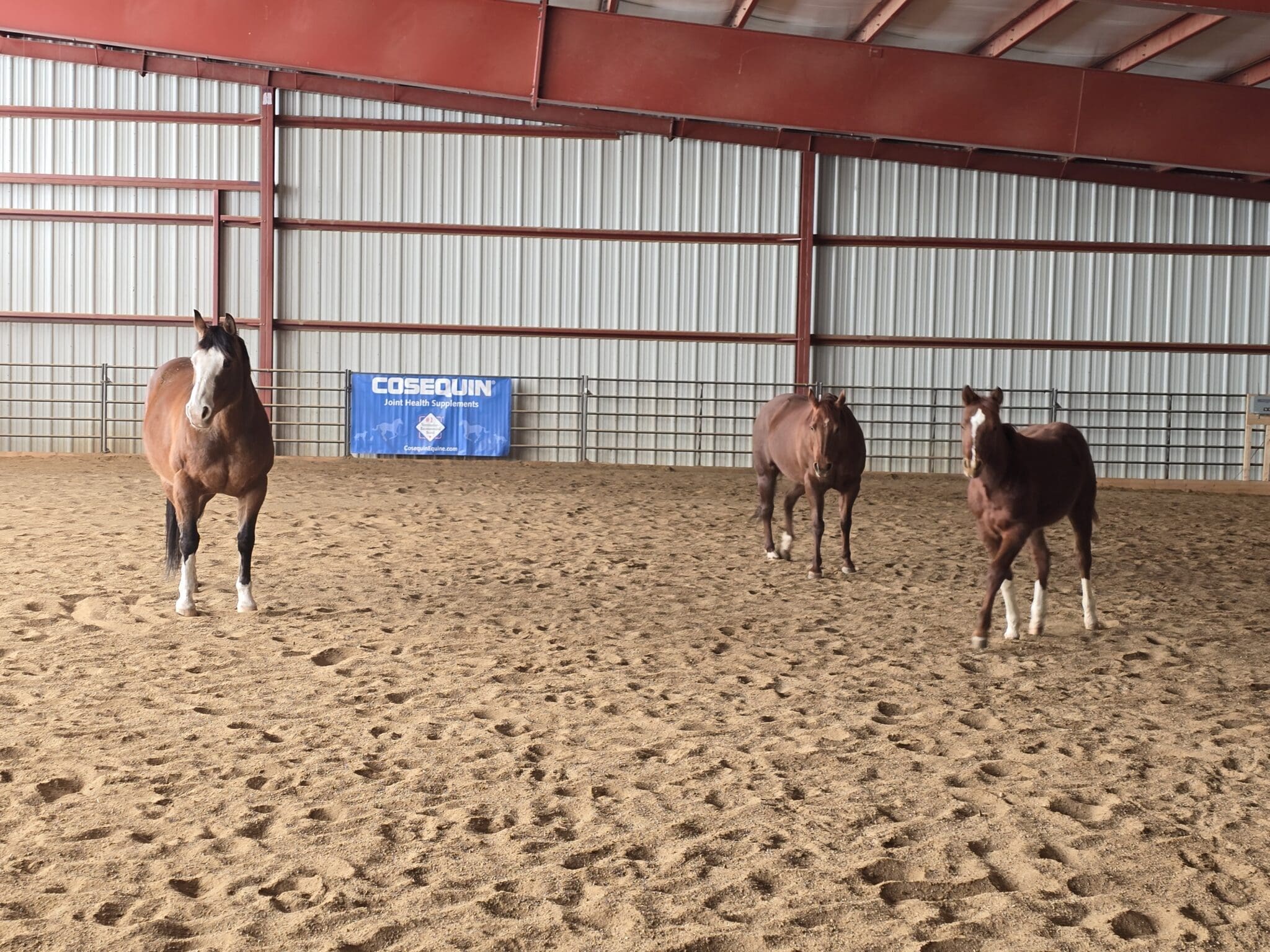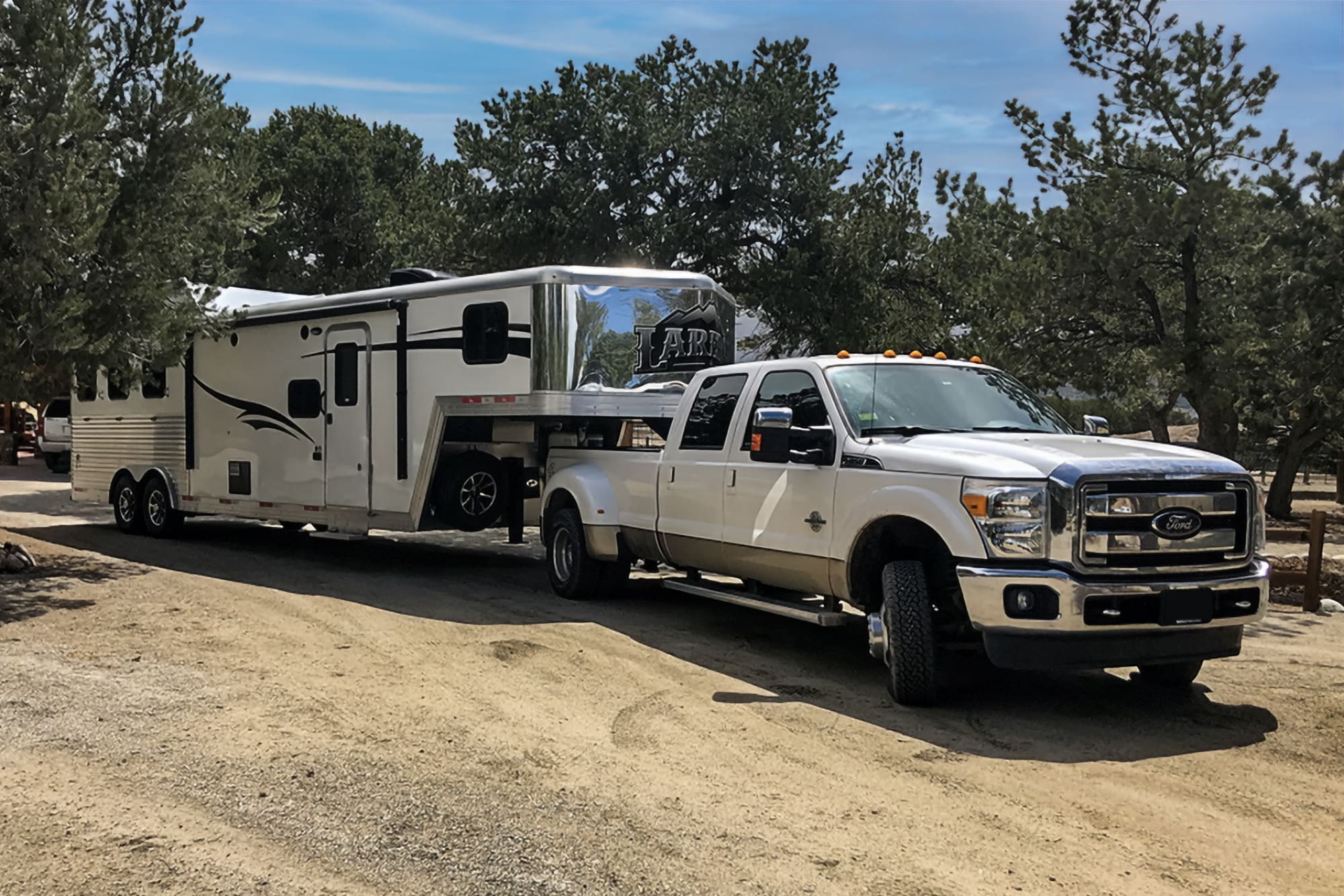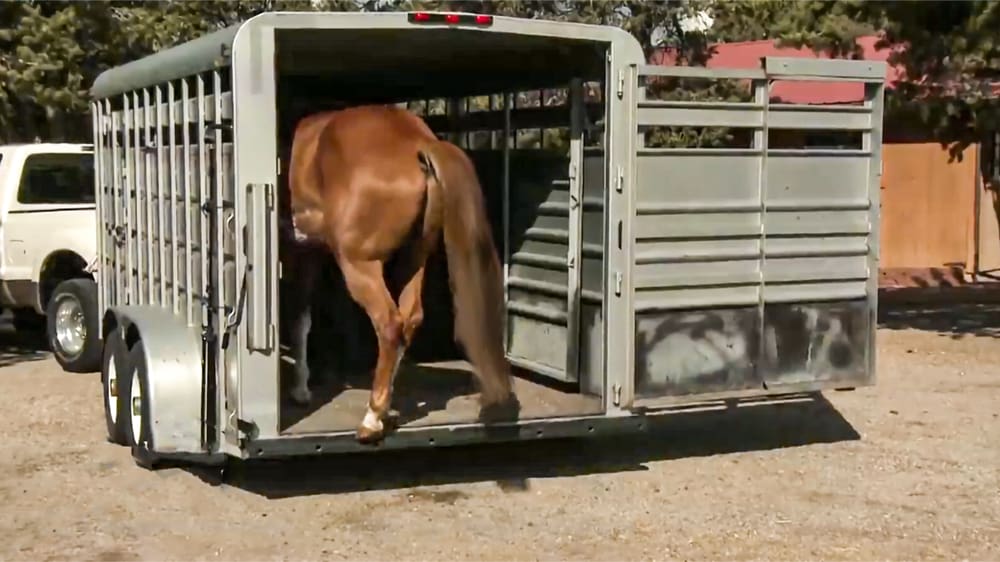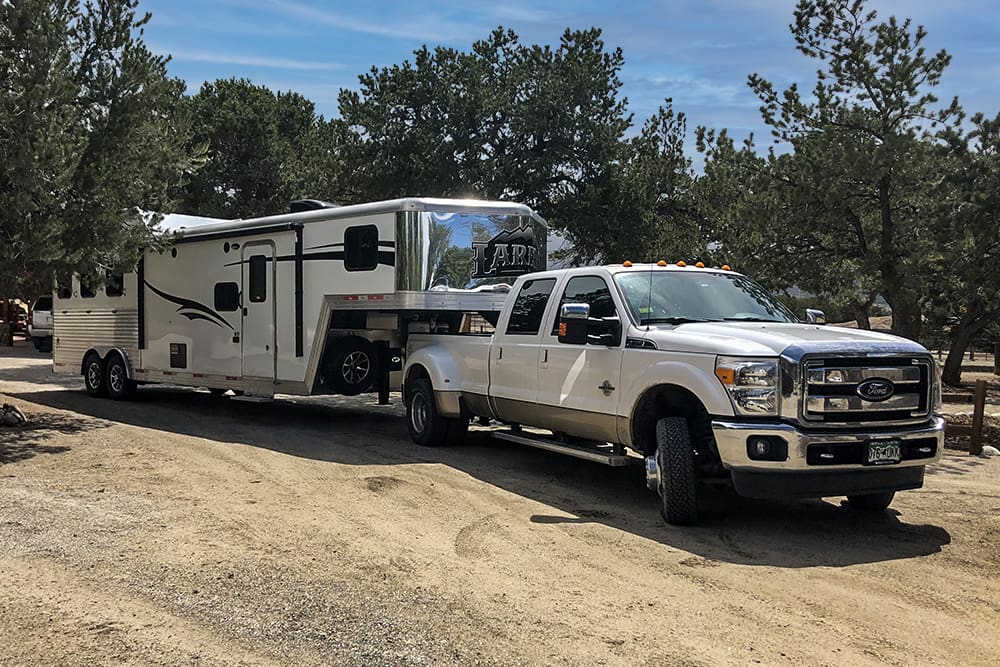Question: I am an intermediate rider and have had my very first horse for the last year now. She is 18 years young and a great trail horse. I don’t know much about her past, but from her highly adverse reaction to seeing a whip when I first got her and her constant need to anticipate what more I am going to ask, I can only imagine what it was like.
I have a trainer helping me with trailer training, and I have some concerns on the method being used. My horse starts to shake when coming up to the trailer and lifts her leg to beg for release. We got her in halfway through patience and asking calmly, but when my mare wouldn’t go further my trainer ran the long line through the stall (the trailer is a straight load) out the escape door and tied it to the outside trailer hook. Then she got behind her with the whip (didn’t even have to touch her with it) to get her to go in.
Now the problem I have with this is that before she went in, she thrashed violently to get away from the whip (not the trailer) and ripped her halter off her head Yes, it broke! She even got a bloody lip. Even though my trainer didn’t even use the whip, other than to hold it, this was the outcome. The horse did load, but in a panic. Then when it was time to come out, she backed out in a rush.
My question is—isn’t there a better way, or is this normal? If it’s best to use another trainer for professional help, what do I need to look for, and what questions should I ask? Please help, thank you!
Renee S., asked on Facebook
Answer:
Yes, I believe that there is a better way. I want to train the horse to walk willingly forward into the trailer with a calm focus—forcefulness and fear are counter-productive to the outcome desired.
I have heard of the loading technique you describe more than once, though. You are lucky nothing more than a broken halter and bloody lip resulted. Sometimes when you are by yourself and must get the horse in the trailer, it is easy to get to a place of despair and “try anything.” I wouldn’t go so far as to say you need to fire your trainer, but I do know there are better techniques to use—focusing on teaching skills of obedience and encouraging willingness.
I want a horse that calmly and fearlessly walks into any trailer when I present him to it—without hesitation or drama. I also want a horse to stay in the trailer unless and until he is asked to back out—then proceeding slowly and cautiously, one step at a time is the best way. I like to train my horses with these intended outcomes in mind. If you force a horse or pull him in, are you teaching him to stay?
With horses in general, and with trailer loading specifically, I do not use any techniques that involve forcefulness with ropes or contributing to the panic and claustrophobia that the horse is already feeling. When attempts are made to “winch” the horse by pulling his head forward with some leverage, usually bad things result and an explosion occurs.
Anything touching the horse from behind when trailer loading discourages his forward interest and makes him worry about his hind end. Anything touching his hindquarters or hind legs, is a distraction to him walking willingly forward into the trailer. It goes without saying that this includes whipping—for the same reasons as above. Causing pain and fear does not give the horse a happy feeling about the trailer.
I also do not employ trailer loading techniques that allow the horse to back out of the trailer whenever he wants. This is a cardinal sin to me and can become highly dangerous. Ever had a horse launch backwards out of the trailer right as you were trying to latch the door? I know many successful trainers that have luck with this technique, but prefer techniques that teach the horse to stay in the trailer until asked to unload.
My favorite trailer loading technique requires two people—both must be equally competent at their jobs and concentrate 100% on the horse and his reactions. One handles the horse’s head, preventing him from going right or left (but not pulling the horse into the trailer); while the other person is back behind the horse, fading into the background, to discourage any backward movement. Through a progression of approaching then stopping, approaching then stopping, the leader controls the nose of the horse and the background person disallows backing, with the use of a training flag, to say, “No, backing is not an option.” The flag is not there to touch the horse, but to discourage the horse’s thought of backing up with an unpleasant stimulus. Through this process, the horse learns that turning right is not an option; turning left is not an option; and backing up is definitely not recommended. The horse learns to make the choice to move forward in the direction you ask, where he finds a lovely reward.
Horses are such clever animals. Once they decide right left and back are not options, their focus immediately goes forward. And this, of course, is rewarded with a release of pressure. Soon, he walks willingly forward into the trailer and is thrilled to find a food-based reward when he gets there. How long it takes the horse to come to this decision depends on the timing of the handlers and how promptly the release of pressure comes (be it physical or mental or sensory).
As for finding a trainer that you can work with, that is the most difficult question for me to answer. Word of mouth is probably the best way to find a horse trainer. Remember, nothing qualifies or regulates a person to be a horse trainer: You are one if you say you are. It is your responsibility as a horse owner to find the right trainer for your horse. Reputations count for a lot, but there are very successful trainers who use techniques that may cross a line for you, even though they produce results.
Watching a trainer work with other horses before you decide to hire him/her may help you decide if his techniques mesh with your ideals. Keep in mind that your ideals must be realistic. You cannot train horses to do difficult things without putting some kind of pressure on them. A trainer must use the amount of pressure necessary to motivate change.
When you visit the trainer to observe him working with other horses, take a look at all the horses in the barn. Are they healthy, happy and vibrant? Or are they dull, listless and wary. Keep in mind that you want your horse to get a lot of work when he is with a trainer, so I am not bothered to see horses worked up into a sweat or lean of muscle or very mellow because they’ve worked hard every day (a good horse is a tired horse). But when horses are over-stressed mentally, it shows in their eyes, their coats and their demeanors.
Trailer loading is one of the most challenging things we can train a horse to do. After all, what horse would willingly walk into a mobile bear den (which is the way he naturally thinks of it)? But by using the techniques to offer choice instead of force—techniques that encourage the correct response and reduce resistance—a horse can let go of his fear and even enjoy loading in the trailer (that’s one reason why we feed our young and inexperienced horses in the trailer—to teach them it’s a good place).
Find out more about solving trailer-loading woes on my new DVD, Stress Free Trailering. I have a section all about how to load, how to teach a horse to back out, how to make sure you are safe before you head down the road and some more tips (including driving and backing a trailer) collected over a lifetime of trailering horses. Hope you’ll check it out in my online shop!
–Julie Goodnight
Please visit Goodnight’s sites for more information and training tips:
Julie’s Website
Julie’s Website



